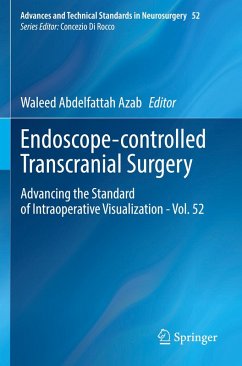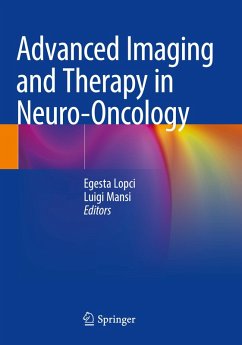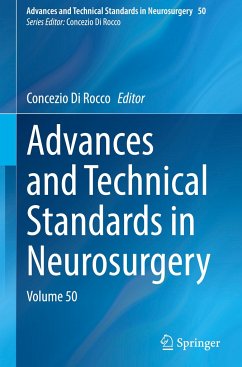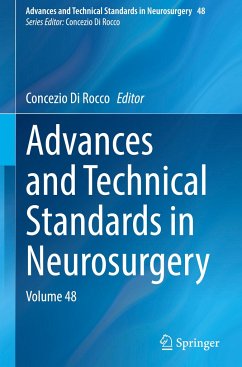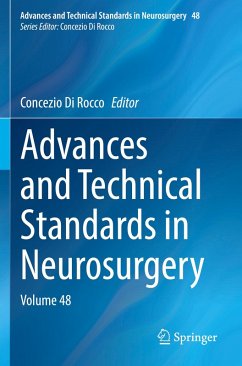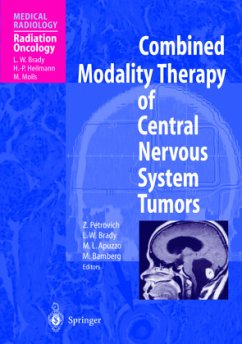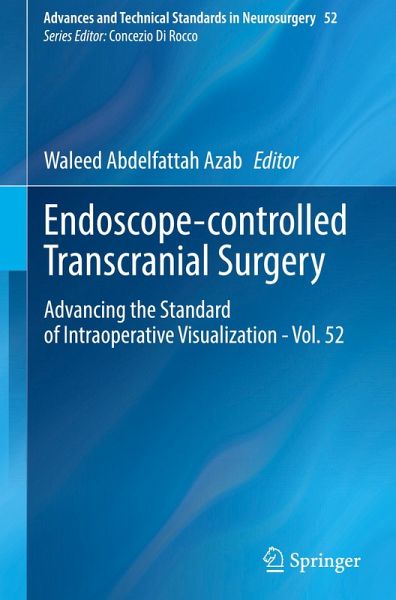
Endoscope-controlled Transcranial Surgery
Advancing the Standard of Intraoperative Visualization - Vol. 52
Herausgegeben: Azab, Waleed Abdelfattah

PAYBACK Punkte
53 °P sammeln!
This book addresses the fully endoscopic or endoscope-controlled transcranial surgery. As a surgical philosophy, it entails that the whole procedure is performed through a tailored keyhole craniotomy under the exclusive control of the rigid endoscope without the use of other visualization tools like surgical microscopes or exoscopes. Despite the well-known extreme superiority of the endoscopic view, especially at deep surgical targets, performing surgery under pure endoscopic control is currently adopted by few neurosurgeons across the globe. The main objective of this book to shed the light o...
This book addresses the fully endoscopic or endoscope-controlled transcranial surgery. As a surgical philosophy, it entails that the whole procedure is performed through a tailored keyhole craniotomy under the exclusive control of the rigid endoscope without the use of other visualization tools like surgical microscopes or exoscopes. Despite the well-known extreme superiority of the endoscopic view, especially at deep surgical targets, performing surgery under pure endoscopic control is currently adopted by few neurosurgeons across the globe. The main objective of this book to shed the light on this minimally-invasive surgical methodology and demonstrate its advantages and practical do ability.
Many internationally renowned expert neurosurgeons thoroughly describe how these procedures are performed using detailed descriptions of the surgical techniques and high-quality illustrations and exquisite intraoperative endoscopic images.
Endoscope-controlled Transcranial Surgery will be a valuable guide to practicing neurosurgeons in raising the bar of intraoperative visualization, with a consequent great improvement of safety and efficacy of the procedure performed. Furthermore, the book will serve as a starting point for more widespread utilization and dispersion of this surgical philosophy in the future.
Many internationally renowned expert neurosurgeons thoroughly describe how these procedures are performed using detailed descriptions of the surgical techniques and high-quality illustrations and exquisite intraoperative endoscopic images.
Endoscope-controlled Transcranial Surgery will be a valuable guide to practicing neurosurgeons in raising the bar of intraoperative visualization, with a consequent great improvement of safety and efficacy of the procedure performed. Furthermore, the book will serve as a starting point for more widespread utilization and dispersion of this surgical philosophy in the future.



